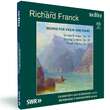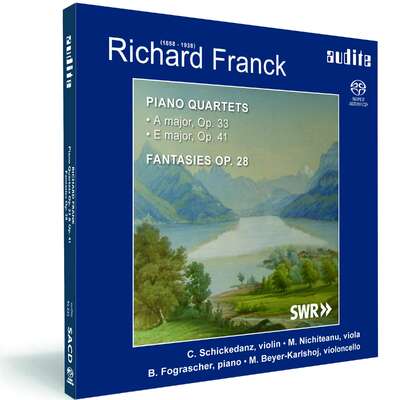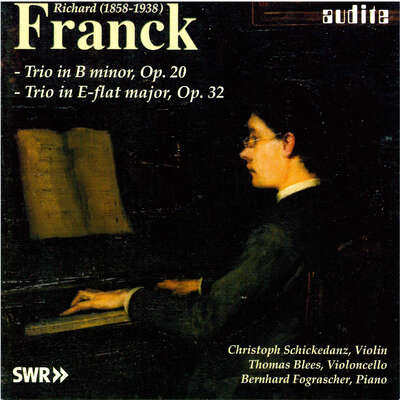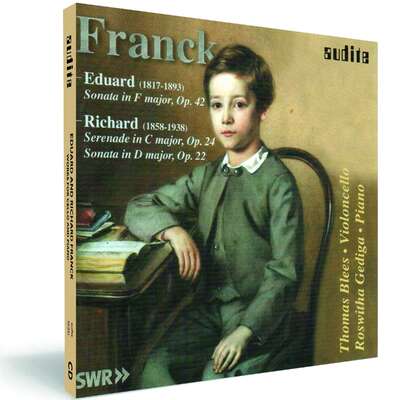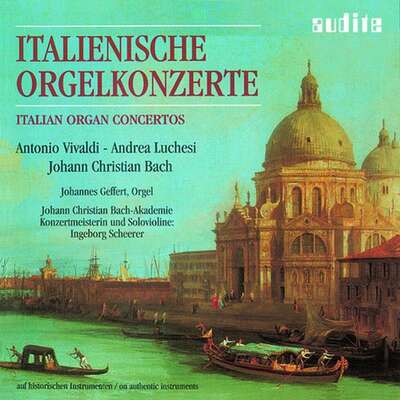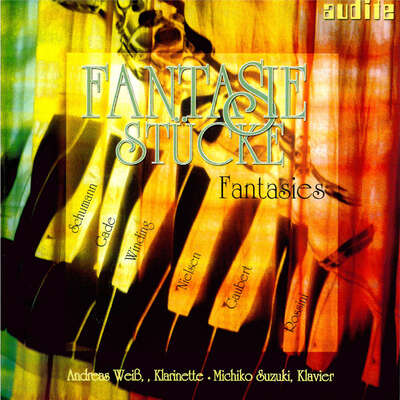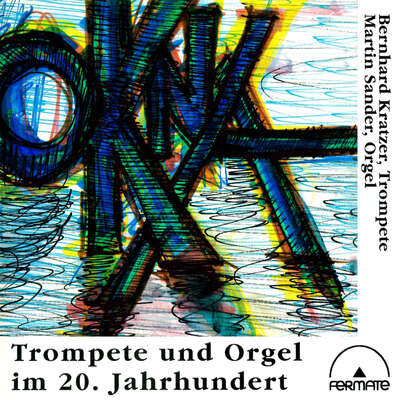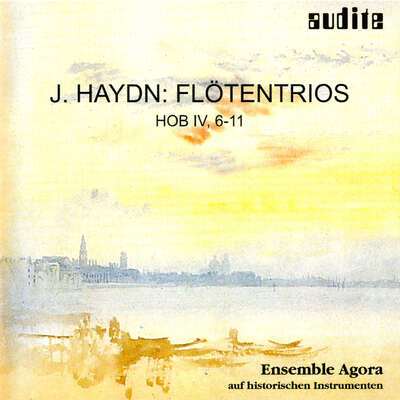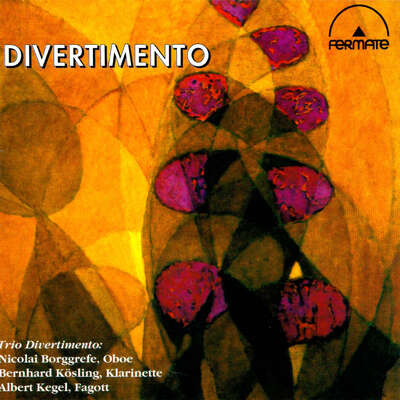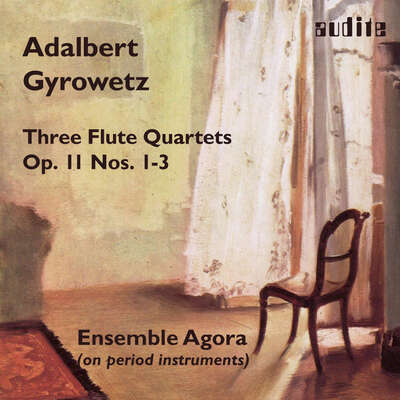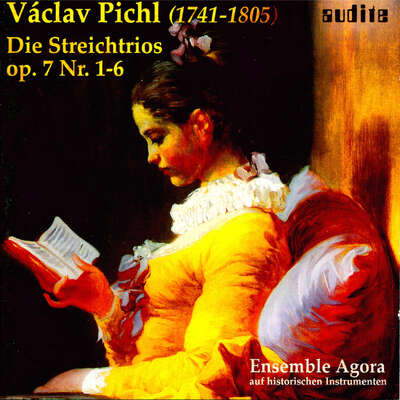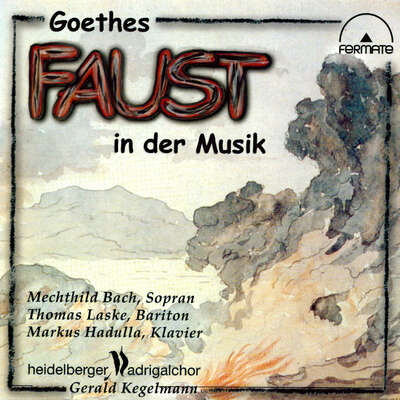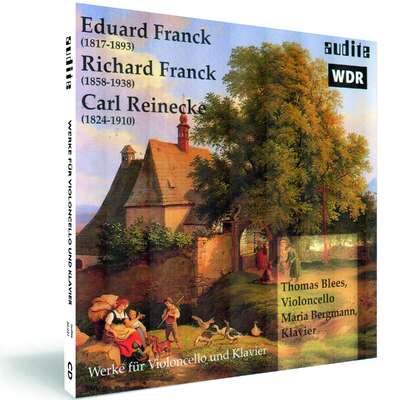
This SACD with first recordings of works by Richard Franck is a continuation of the audite series of the works of the composers Eduard and Richard Franck. The principal creative phase of Richard Franck was during the transitional period between 1880 and 1910, a time marked by a radical change from...more
"Die akustische Balance und das in jeder Temponuance optimale Zusammenspiel zeigen nicht nur ein herausragendes Niveau der Musiker – Perfektion, die alle Kräfte zu einer so liebevollen wie abwechslungsreichen Gestaltung freisetzt." (www.klassik-heute.de)
Details
| Richard Franck: Violin Sonatas Nos 1 & 2, Three Pieces Op. 52 | |
| article number: | 92.515 |
|---|---|
| EAN barcode: | 4022143925152 |
| price group: | ACX |
| release date: | 1. January 2004 |
| total time: | 55 min. |
Informationen
This SACD with first recordings of works by Richard Franck is a continuation of the audite series of the works of the composers Eduard and Richard Franck. The principal creative phase of Richard Franck was during the transitional period between 1880 and 1910, a time marked by a radical change from the late romantic to the beginning of the modern era. It is within this field of tension that the music of Richard Franck moves.
In the Sonata No. 1 in D major, Op. 14 of 1890, the composer comes to terms for the first time with the then popular sonata form. Wholly typical of his time, Franck reflects the classical form without breaking out of it. The characters of the individual movements range from the powerful and inventive first movement to the waltz-like second and intimate third to the virtuoso final movement, in which the work comes full circle by taking up thematic material from the first movement again. The Sonata No. 2 in C minor, Op. 35 was composed in 1903. Richard Franck shows himself to be fond of development here, enlarging upon the compositional principles already mastered. The result is a highly diversified sonata, sometimes reminiscent of Brahms's way of developing motivic material. The three short Character Pieces, Op. 52 are among the last published woks of Franck. The Elegy has a resigned effect, like a farewell, followed by a humorous Scherzo; the final piece is a Perpetuum Mobile, a playful virtuoso piece in "flight of the bumble-bee" style.
Christoph Schickedanz is a Professor at the Academy of Music and Theatre in Hamburg. A DAAD stipend enabled him to study at Indiana University in Bloomington, USA, where he met Bernhard Fograscher. This meeting was the cornerstone for a fruitful collaboration between the two artists. Bernhard Fograscher has been a prize winner at numerous competitions. He enjoys an active concert and recording career at home and abroad. The Schickedanz-Fograscher Duo has chosen to specialize in unusual repertoire combinations and unjustly neglected composers.
Reviews
klassik.com | November 2008 | Christian Vitalis | November 9, 2008 | source: http://magazin.k... Blasser Eindruck trotz guter Interpretation
Das Label Audite kümmert sich bereits seit einigen Jahren intensiv um dieMehr lesen
Neue Musikzeitung | Juli/August 2006 | Mátyás Kiss | July 1, 2006
Europäische Kammermusik des Fin de Siècle
Die Musik einer Zeitenwende auf CDs aus jüngster Zeit
[...]<br /> <br /> Wie nebenbei erweist sich der angenehm Publicityscheue Frank PeterMehr lesen
Wie nebenbei erweist sich der angenehm Publicityscheue Frank Peter
Scherzo | Num. 198, Junio 2005 | J.P. | June 1, 2005
El sello Audite sigue con su colección de obras de Richard y EduardMehr lesen
Classica-Répertoire | mai 2005 | Jean-Pascal Hanss | May 1, 2005
Richard Franck, élève de Reinecke et contemporain de Reger nous gratifieMehr lesen
CD Compact | Num. 186 | Juan Carlos Moreno | April 1, 2005
La sombra de Johannes Brahms, y con ella la del romanticismo germánicoMehr lesen
Pizzicato | 3/2005 | Rémy Franck | March 1, 2005 Spannungsvolle Interpretationen
Richard Franck, der Sohn Eduard Francke, lebte von 1858-1938. Die hier aufgeführten Werke entstanden 1890, 1903 und 1910 und sind ganz dem Geist derMehr lesen
Fono Forum | 3/2005 | Anselm Cybinski | March 1, 2005 Spätblüher
Folge 9 der Franck-Reihe bei Audite bietet erlesenes Hörvergnügen. Da ist der klare, perfekt ausbalancierte Aufnahmeklang. Da sind dieMehr lesen
Diapason | Janvier 2005 | Jean-Claude Hulot | January 1, 2005
La firme Audite a entrepris de réhabiliter la musique d’Eduard Franck, romantique allemand qui fut l’élève particulier de Mendelssohn et quiMehr lesen
Les deux sonates pour violoncelle et piano sont de réelles réussites qui mettent en valeur le lyrisme flatteur de l’instrument, et qui mériteraient de revenir au répertoire ; l’éditeur leur associe celles de Richard Franck, fils d’Eduard et élève de Reinecke (lui-même successeur de Mendelssohn à Leipzig), également pianiste, compositeur et chef d’orchestre. Moins inspirées que celles de son père, elles n’en témoignent pas moins de la qualité « artisanale » du travail du fils Franck ; bonne idée d’avoir fait le lien par les Trois pièces, charmeuses et un peu salonnardes de Reinecke. Enfin, les deux trios avec piano de Richard sont également marqués par les influences de Mendelssohn, Schubert et Schumann, avec les mêmes écriture et invention mélodique que son père, quoique encore plus anachronique (1893 et 1900) ; les deux sonates pour violon et piano (1890 et 1903) sont tout autant charmeuses, illustrant avec bonheur la facture de cette « musique de salon » comme la baptisait avec condescendance Max Reger. Au demeurant, bien défendues par les musiciens réunis pour ces disques, ces pages inédites ne manquent pas d’attrait et justifient qu’on sorte des sentiers battus pour aller à leur rencontre.
The Strad | January 2005 | Tully Potter | January 1, 2005 R. Franck Violin Sonotas no. I in D major op.l 4 & no.2 in C minor op.35, Three Pieces op.52
The Audite label is busy reviving the music of Eduard and Richard Franck.Mehr lesen
klassik-heute.com | Dezember 2004 | Hans-Christian v. Dadelsen | December 30, 2004
Violine und Klavier sind eine empfindliche Konstellation, die denMehr lesen
www.classicstodayfrance.com | 18.12.2004 | Christophe Huss | December 18, 2004
On peut resservir ici une grande réflexion sur l'idée imbécile deMehr lesen
Ensemble - Magazin für Kammermusik | 6/2004 | Hans-Dieter Grünefeld | December 1, 2004
Wenn Kammermusik vor ausgesuchten Gästen im wohlhabenden PrivatambienteMehr lesen
Musica | N° 160 - ottobre 2004 | October 1, 2004
Figlio di Eduard, Richard Franck trasborda nel Novecento (con originaleMehr lesen
News
Figlio di Eduard, Richard Franck trasborda nel Novecento (con originale...
R. Franck Violin Sonotas no. I in D major op.l 4 & no.2 in C minor op.35, Three Pieces op.52
El sello Audite sigue con su colección de obras de Richard y Eduard Franck....
La sombra de Johannes Brahms, y con ella la del romanticismo germánico más...
Richard Franck, élève de Reinecke et contemporain de Reger nous gratifie...
La firme Audite a entrepris de réhabiliter la musique d’Eduard Franck,...
On peut resservir ici une grande réflexion sur l'idée imbécile de "progrès...
Violine und Klavier sind eine empfindliche Konstellation, die den Komponisten...
Wenn Kammermusik vor ausgesuchten Gästen im wohlhabenden Privatambiente...
